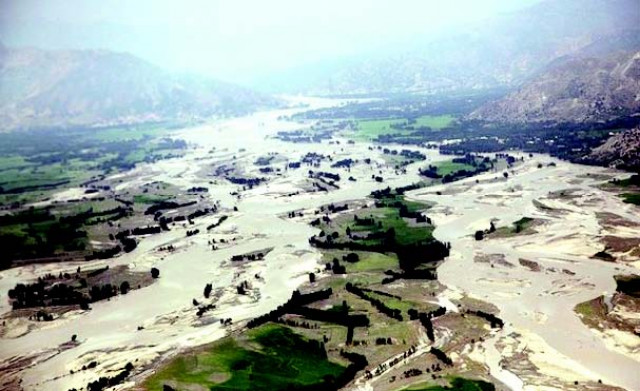71% rice crop destroyed in Khyber-Pakhtunkhwa
Out of the total of 76,564 acres of land used for rice cultivation, 54,665 acres were simply washed away.

The Food and Agriculture Organisation of the United Nations has released a damage assessment report of the agriculture sector in Khyber-Pakhtunkhwa.
The report reveals that up to 71 per cent of the rice crop has been lost to the floods. Out of the total of 76,564 acres of land used for rice cultivation, 54,665 acres were simply washed away. Furthermore, the flood wreaked havoc on maize plantations as well, with 45 per cent of the total crop lost in the province and 226,902 acres of farmland damaged.
In all 3.2 million hectares of agricultural land has been damaged or destroyed. In a province where 80 per cent of the population depends on agriculture as their only means of livelihood, economic hardships are getting worse by the day. Fifty-nine per cent of the vegetable produce has been lost and 19,144 acres of farmland used for vegetable cultivation affected.
Also 26 per cent of the sugarcane crop and 57,098 acres of plantation land, 14 per cent of fruit orchards and 11,419 acres of orchard land, and 4 per cent of the tobacco crop and 967 acres of land were also destroyed.
Right now, the most critical matter at hand is how to plant wheat and vegetables in the coming Rabi season. If the crops are not planted by September/October, the country will face massive shortages of wheat and seasonal vegetables next year, and plantation will not be possible for another twelve months.
However the situation is further complicated, as the cultivation cannot begin until seed is made available and flood debris cleared from the fields. Seed from last years crop was washed away by the flood, as were farm implements. Wheat accounts for almost 60 per cent of the national cereal production, and if the coming season is missed, there will be widespread economic repercussions at the micro and macro levels.
Published in The Express Tribune, August 29th, 2010.


















COMMENTS
Comments are moderated and generally will be posted if they are on-topic and not abusive.
For more information, please see our Comments FAQ